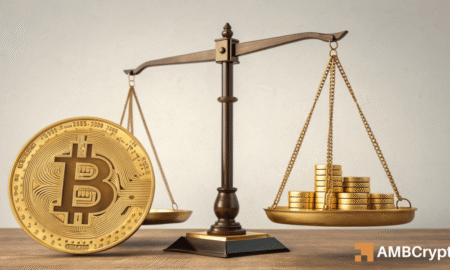The Impact of Bitcoin Mining Facilities on Local Communities: A Case Study from Granbury, Texas
Bitcoin mining, a process that verifies transactions on the Bitcoin network, has gained immense popularity. However, the industry is facing backlash from local communities due to significant negative externalities, particularly in places like Granbury, Texas. This article explores the challenges residents face due to the Bitcoin mining facility in their town and the broader implications for energy demand and legislation in the state.
The Noise Pollution Dilemma
Residents of Granbury, located approximately 70 miles southwest of Dallas, have reported severe disruptions to their daily lives since the establishment of a 300-megawatt Bitcoin mining facility operated by Marathon Digital Holdings. The primary complaint is noise pollution, which has been described as an "invisible force" affecting local quality of life. Long-term residents and retirees have shared experiences of constant headaches, vertigo, and brain fog, all attributed to the incessant low-frequency noise emitted from the facility. Animal health has also suffered, with reports of anxiety in horses and even fatalities linked to the environmental stressors caused by the mining operations.
Rising Energy Demand Concerns
The consequences of Bitcoin mining extend beyond immediate discomfort. The energy demands of these facilities are set to double Texas’s overall energy consumption by 2030. A notable example is the Riot Platforms mining site under construction in Corsicana, Texas. Expected to consume a staggering 1.5 million gallons of water daily—about one-eighth of the city’s supply—the Corsicana facility highlights the growing concerns surrounding resource allocation in regions where such facilities are becoming prevalent.
Legal Actions and Community Response
The mounting frustrations of Granbury residents culminated in a lawsuit filed in October 2024 against Marathon Digital. The suit alleges that the mining operations have negatively impacted the residents’ health, led to increased electricity costs, and resulted in declining property values. The community’s grievances were initially met with a lack of accountability; earlier in 2024, a Texas jury acquitted the facility’s manager, David Fischer, of all 12 noise violation charges, further fueling resident discontent.
The Regulatory Landscape
The situation in Granbury coincides with broader legislative efforts surrounding cryptocurrency in the U.S. Recently, the pro-crypto Trump administration has taken steps to advance key legislation concerning stablecoins, central bank digital currencies, and the digital asset market structure. However, despite the increasing focus on crypto regulations, no specific laws targeting Bitcoin mining facilities have been enacted. This gap in the legislative framework raises questions about how local communities can protect themselves from the far-reaching impacts of this burgeoning industry.
Financial Implications for Mining Companies
In an effort to adapt and grow, MARA Holdings, the parent company of Marathon Digital, has announced plans to issue up to $1 billion in convertible senior notes, with a portion of the funds earmarked for Bitcoin purchases. This financial maneuver underscores the intense competition and potential profitability in the Bitcoin mining sector, an aspect that may further entrench its presence in communities like Granbury. However, as financial interests grow, local well-being appears increasingly precarious, creating a troubling dichotomy that demands attention.
Conclusion: The Need for Balanced Solutions
The scenario in Granbury serves as a cautionary tale about the implications of Bitcoin mining on local communities. While Bitcoin remains the leading cryptocurrency by market capitalization and continues to draw investment, local residents face real challenges that require urgent attention. Effective regulation and community-oriented solutions are essential to ensure that the industry’s growth does not come at the expense of public health and safety. As Bitcoin mining continues its upward trajectory, these discussions must engage local populations to foster a responsible and sustainable future for all stakeholders involved.
















